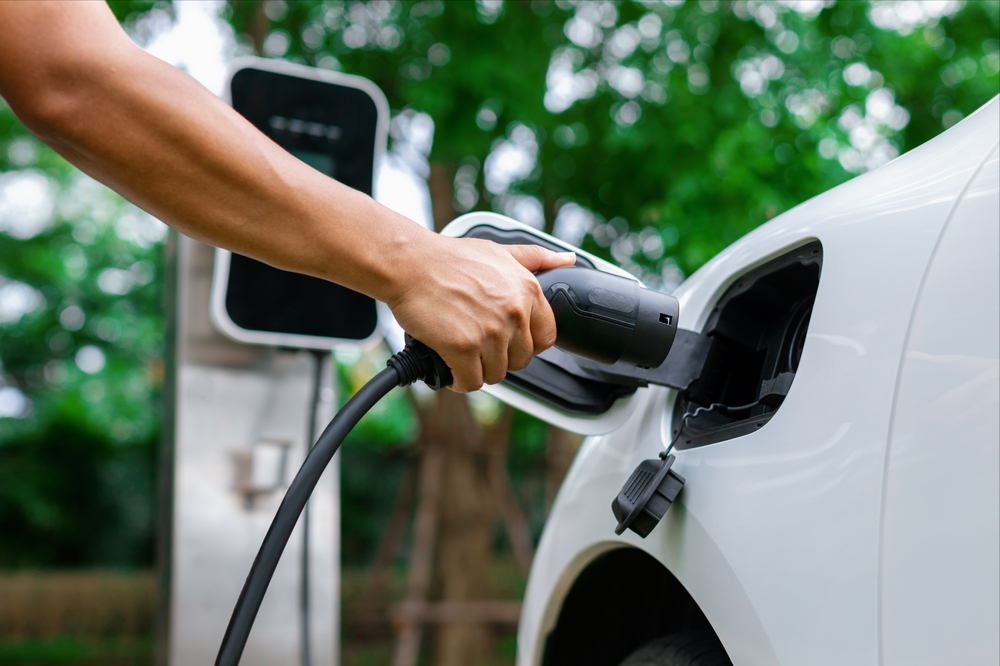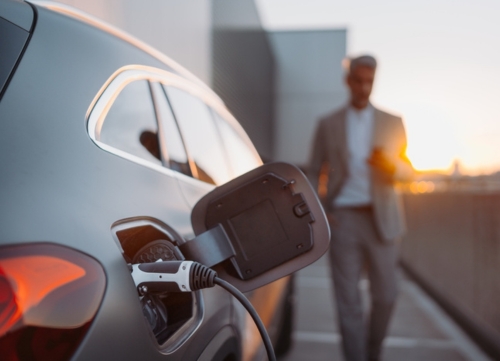The acceleration in EV adoption
By SG Fleet | 31 October 2023

The world is indeed rapidly shifting gears, with the acceleration in electric vehicle (EV) adoption becoming a remarkable movement. The UK has seen an unprecedented surge in EV adoption, with around 858,000 zero-emission Battery Electric Vehicles on the roads.
Over the last two years, the adoption of EVs has increased by a staggering 291%, signalling a paradigm shift in consumer behaviour and preferences. Yet, despite these promising trends, challenges persist.
A significant portion of the population remains unconvinced by EVs, pointing to the need for comprehensive awareness campaigns. Moreover, most cars on the UK roads are still fuelled by petrol and diesel, underscoring the magnitude of the transition ahead. This article aims to explore this accelerating transition, investigating the various factors driving the UK towards a sustainable transportation future.
Government policies fuelling EV adoption
The UK transition to EVs is gaining momentum globally, with government incentives and grants for infrastructure development plans. This progress is particularly notable in the UK, where the government is implementing several strategies to expedite the transition.
One of the primary drivers of EV adoption in the UK is the government's ambitious target to end the sale of new petrol and diesel cars by 2035. This policy has set the stage for a significant shift in the country's automotive landscape, propelling the UK towards a more sustainable future. Incentives are a crucial part of these initiatives.
The UK government offers a plug-in vehicle grant, which reduces the cost of brand-new low-emission vehicles. Business users buying electric vans can apply for up to 35% of the list price. Similarly, motorbike or moped purchases can receive funding of up to £150 or £500, respectively.
Moreover, the government has pledged significant investment into charging infrastructure to address 'range anxiety' – a common concern among potential EV buyers about the distance they can travel on a single charge. Public Electric Vehicle Charging Infrastructure Report is one such initiative, aiming to improve the network of high-powered charge points across motorways and major A roads.

Environmental needs driving EV adoption
As the global community becomes increasingly aware of environmental challenges, the acceleration in EV adoption is being recognised as a significant part of the solution. Traditional vehicles powered by internal combustion engines contribute heavily to greenhouse gas emissions and air pollution
Transportation is one of the largest sources of carbon dioxide (CO2) emissions worldwide, accounting for about 24% of global CO2 emissions from fuel combustion. In the UK specifically, road transport contributes to approximately a third of the nation's total CO2 emissions. Vehicles powered by petrol and diesel not only emit CO2 but also release harmful pollutants like nitrogen oxide and particulate matter, which have detrimental effects on air quality and public health.
Electric vehicles offer a viable alternative to their fossil-fuel counterparts, capable of significantly reducing these harmful emissions. When powered by renewable energy sources, EVs can operate virtually carbon-free. Even when charged with electricity from the grid, they still tend to produce fewer emissions than traditional cars due to their higher efficiency.
Tech advancements accelerating EV adoption
The technological landscape surrounding EVs has evolved dramatically over the past decade, playing a crucial role in the fast transition to EV vehicles. Unprecedented advancements in battery technology, charging infrastructure, and vehicle performance are making EVs more appealing and accessible, thereby accelerating their adoption.
Battery development
Perhaps the most significant advancement in EV technology has been in battery development. Lithium-ion batteries have become increasingly efficient, offering longer range and shorter charging times. Furthermore, the ongoing research into solid-state batteries promises even more significant energy density and safety, potentially revolutionising the EV industry.
Fast charging
The emergence of fast-charging stations has helped alleviate range and made long-distance travel with EVs more feasible. Innovative charging technologies enable EVs to interact with the grid, optimising charging times based on electricity demand and supply. Additionally, concepts like electrified roads and wireless charging are being explored, which could further simplify the charging process.
Performance and connectivity
Vehicle performance and connectivity have also improved significantly. Modern EVs boast impressive acceleration and handling, often outperforming their internal combustion engine counterparts. Moreover, the integration of advanced driver assistance systems and infotainment features enhances safety and enjoyment.

eStart: SG Fleet’s EV fleet solution
Embracing the acceleration in EV adoption is not just an environmental necessity but also a strategic move for businesses. At SG Fleet, we’re passionate about the move towards a greener future.
As part of this push, SG Fleet offers eStart, a comprehensive double award-winning solution for EV fleet management. It’s a Zero Emission Vehicle (ZEV) Transition Plan, giving end-to-end planning support that helps you organise and manage your budget and vehicle requirements while switching to ZEV fleets.
We’ll discuss your specific goals, whether that’s reducing CO2 emissions, fuel and maintenance management, supporting your ESG goals, green credentials and more. We then assess your current fleet against these goals and study the vehicle usage pattern across several criteria.
This is followed by a site assessment to explore charging and storage situations, as well as to study the existing site capability. We then move onto the transition plan by implementing the information before exploring funding options and support, if needed.
Don't let the challenges of transitioning to electric vehicles deter you. Get in touch with us today for more information and begin your journey towards a sustainable, cost-effective fleet.
Further reading
- How Much Money Can EVs Save Your Fleet?
- Clean Air Day: Ways to Reduce Fleet Emissions


.png)


.png)
.png)
.png)